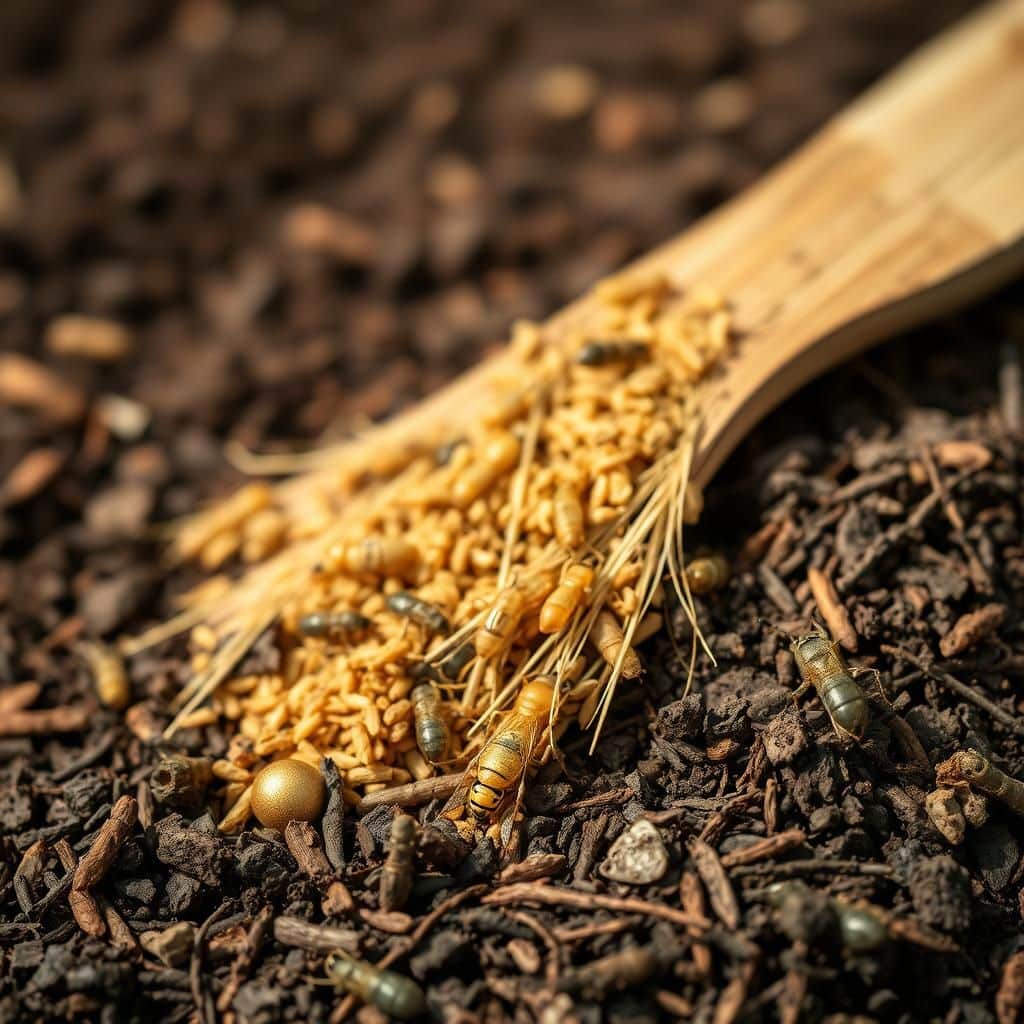What Mulch Do Termites Not Eat? Discover the Best Options for Your Garden

When it comes to gardening, choosing the right mulch is crucial for maintaining healthy plants and soil. However, one often overlooked concern is the threat of termites, which can wreak havoc on organic materials in gardens. Understanding which types of mulch termites are less likely to consume is essential for protecting your landscape. In this article, we will explore the best mulch options that resist termite infestation, ensuring that your garden flourishes without the risk of these destructive pests. Join us as we delve into effective strategies for selecting termite-resistant mulches that also promote healthy plant growth.
What Mulch Do Termites Not Eat?
Mulch is a common garden material that can affect the presence of termites in your yard. Termites typically feed on cellulose found in wood and organic materials, making certain types of mulch more appealing to them. To minimize the risk of termite infestations, consider using inorganic mulches such as gravel, crushed stone, or rubber mulch. These types do not provide a food source for termites, thus helping to protect wooden structures and plants in the vicinity while still maintaining moisture retention and weed control.
1. Inorganic Mulch Types
Inorganic mulches like gravel and crushed stone are effective barriers against termites. They consist of materials that do not decompose or provide cellulose, the primary food source for these pests. By using inorganic mulch, gardeners can enjoy aesthetic benefits while reducing the likelihood of attracting termites to their landscaping.
2. Rubber Mulch
Rubber mulch is made from recycled tires and is an excellent option for those looking to avoid termite problems. This type of mulch is durable and does not break down over time, unlike organic materials. Its structure offers good drainage and weed suppression while ensuring that it remains untouched by termites.
3. Rock and Stone Mulch
Rock and stone mulches can provide a decorative yet practical solution for termite management. Their density makes them less appealing to termites, and they can withstand various weather conditions without significantly decomposing. Using stone mulch can create attractive landscaping features while effectively deterring termite activity.
See also:
4. Landscape Fabric as a Barrier
Implementing landscape fabric in combination with inorganic mulch creates an additional barrier against termites. This fabric prevents soil and mulch from mixing, reducing moisture that attracts termites, while allowing water to permeate. This method assists in controlling weeds and promotes healthy plant growth without inviting pests.
5. Benefits of Non-organic Mulches
Choosing non-organic mulches has various benefits beyond termite prevention. They provide long-lasting coverage and do not require frequent replenishing due to decomposition. In addition, these materials reduce erosion, improve drainage, and support soil structure, making them advantageous for gardeners who wish to maintain a low-maintenance landscape.
| Mulch Type | Termite Attraction |
|---|---|
| Gravel | No |
| Crushed Stone | No |
| Rubber Mulch | No |
| Rock Mulch | No |
| Straw | Yes |
Understanding Termite-Resistant Mulch Options for Your Garden
When selecting mulch that termites do not eat, it is crucial to consider materials that naturally repel these pests. Cypress mulch, for instance, contains oils that are toxic to termites and serves as an excellent barrier. Rubber mulch, made from recycled tires, is another alternative; its synthetic nature makes it unattractive to termites. Other options include gravel or stone mulch, which are inorganic and provide no sustenance for termites, making them effective in protecting your garden. It's essential to choose mulch that not only enhances the aesthetics of your garden but also preserves the integrity of your plants by deterring termite infestations.
Cypress Mulch: A Natural Termite Deterrent
Cypress mulch is well-known for its natural resistance to insects, including termites. The oils found in cypress trees act as a natural repellent, making this type of mulch a preferred choice for gardeners looking to protect their plants. Additionally, it has a pleasant aroma and a beautiful color that enhances the garden landscape. By using cypress mulch, gardeners can create a barrier against termite infestations while benefiting from its aesthetic qualities.
Rubber Mulch: A Long-lasting Solution
Rubber mulch, made from recycled tires, offers a durable and effective solution for those seeking termite-resistant options. Unlike organic mulches that can decompose over time, rubber mulch remains intact and provides excellent drainage while keeping weeds at bay. Its synthetic composition ensures that termites find it unappealing, making it a practical choice for creating a low-maintenance garden that requires minimal replacement.
See also:
Gravel and Stone Mulch: Inorganic Alternatives
Inorganic options like gravel and stone mulch are highly effective in preventing termite issues in gardens. These materials do not provide any nutritional value for termites, making them an ideal choice for gardeners concerned about pest infestations. Moreover, gravel and stone are highly functional, allowing for excellent water drainage and helping to regulate soil temperature. Their weight and composition also help in suppressing weeds, thereby contributing to garden health.
Compost and Wood Chips: Must Be Treated with Care
While compost and wood chips are popular organic mulches, they can attract termites if not properly managed. To reduce the risk, it is advisable to use treated wood chips that have been heat-treated to kill potential pests. Additionally, mixing these organic materials with substances like diatomaceous earth can act as a deterrent. It’s essential for gardeners to regularly monitor these mulches for any signs of termite activity while employing preventive measures.
Mulch Placement and Maintenance Strategies
Proper placement and maintenance of mulch are crucial for minimizing termite attraction. When applying any type of mulch, it is advisable to keep it at least several inches away from the foundation of your home. This creates a physical barrier that makes it harder for termites to reach your home. Regularly inspecting your garden for any moisture buildup and replacing any organic material as needed can significantly decrease the chances of a termite infestation, ensuring your plants thrive in a safe environment.
Questions from Our Readers
What types of mulch are resistant to termites?
Mulches that are made from materials such as rubber, stone, and cocoa hulls are generally resistant to termites. Rubber mulch is particularly effective since it is not a food source for these pests. Additionally, using landscaping fabric beneath mulch can help create a barrier that further deters termite activity.
Does cedar mulch deter termites?
Yes, cedar mulch is known to have natural properties that help deter termites. The oils present in cedar contain compounds that are toxic to termites, making it a favorable choice for landscaping. However, it's essential to ensure that the mulch is used correctly for maximum effectiveness in repelling these pests.
See also:
Can I use gravel as mulch to prevent termites?
Absolutely, gravel is an excellent option for mulch that termites do not eat. It provides good drainage and can help reduce moisture in the soil, which is a condition that attracts termites. By using gravel, you can enjoy an aesthetically pleasing landscape without the risk of termite damage.
Are there any organic mulches that termites avoid?
Some organic mulches, like pine bark and sawdust, tend to be more appealing to termites. However, tea tree mulch is noted for having natural insect-repelling properties and is another organic choice. While no organic mulch is entirely termite-proof, selecting one with repellent qualities can decrease the likelihood of an infestation.

If you want to read more articles like What Mulch Do Termites Not Eat? Discover the Best Options for Your Garden, we recommend you check out our Mulch category.
Leave a Reply
Related Articles